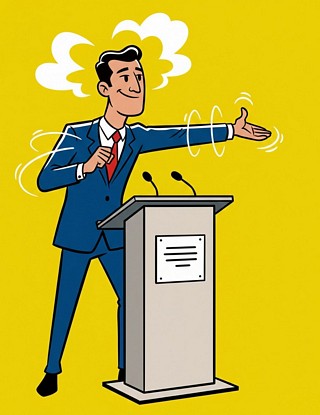 Most conversations don’t collapse because of rudeness. They collapse because one person is doing all the work.
Most conversations don’t collapse because of rudeness. They collapse because one person is doing all the work.
You ask a question, you get the bare minimum back, and the burden of keeping things alive falls entirely on you. What’s missing, on their side, is what might be called a conversational breadcrumb: a small, volunteered detail that gives you something to build on.
Consider the mechanics. You ask, “How was your weekend?” and they say, “Good.” Nothing to work with. Had they said, “Good. I finally tried that new Thai place on the corner,” you’d have somewhere to go. The difference isn’t politeness—it’s a willingness to share a bit more of their life. One answer is inert; the other keeps things moving. A person who says, “I’m a lawyer,” tells you something. A person who says, “I’m a lawyer, though most of my time involves intellectual property disputes for toy companies,” gives you three things to follow up on.
People who don’t offer breadcrumbs usually aren’t being difficult. They’re habitual minimalists. Some treat conversation as merely information transfer—anything beyond the precise answer feels like excess. Others self-edit, convinced their details are too trivial to share. Either way, if you’re more invested than they are in pursuing the exchange, both types will disappoint you. If you’re genuinely curious, almost any specific detail is interesting. What feels inconsequential to them is often exactly what you were hoping for.
You can try to draw them out. “Was it a good trip?” invites a verdict. “What was the best part?” requires a feeling, which is considerably harder to answer in one word. But if two genuine attempts yield nothing, it’s worth stopping. The most underrated conversational skill is knowing when to quit. Pushing past reluctance produces frustration, not connection.
And sometimes there’s no technique that helps. Two perfectly capable conversationalists simply aren’t a good fit—interests diverge, rhythms clash, or the timing’s off. That’s not a failure on your part, it’s a fact about the particular combination.
Idea for Impact: When you’re genuinely interested in conversing with someone, a dead end is simply information about where the conversation isn’t going to go. You gave them the opportunity. You tried more than once. That’s enough reason to stop.
 One of the most useful questions in design is deceptively simple: What experience would
One of the most useful questions in design is deceptively simple: What experience would  When employees returned to offices after COVID, many found their desks had been replaced by lockers. Each morning meant competing for whatever seat was free, carrying laptops from floor to floor, setting up from scratch. Hot-desking was
When employees returned to offices after COVID, many found their desks had been replaced by lockers. Each morning meant competing for whatever seat was free, carrying laptops from floor to floor, setting up from scratch. Hot-desking was 
.jpg)
 “Socrates and Plato were shocked by the sophists because they had no religious aims,” Russell observes, noting that many ancient Greek philosophers “founded fraternities which had a certain resemblance to the monastic orders of later times.” These philosophical schools—such as those established by
“Socrates and Plato were shocked by the sophists because they had no religious aims,” Russell observes, noting that many ancient Greek philosophers “founded fraternities which had a certain resemblance to the monastic orders of later times.” These philosophical schools—such as those established by  Minor annoyances can drain you more than you realize. They don’t vanish after the moment passes; they linger, filling every bit of mental space you allow them. The irritation itself is brief, but the
Minor annoyances can drain you more than you realize. They don’t vanish after the moment passes; they linger, filling every bit of mental space you allow them. The irritation itself is brief, but the  Phrases such as “look,” “here’s the deal,” and “here’s what you need to know” have become common preambles. Sometimes they’re harmless fillers, but often they’re micro-commands
Phrases such as “look,” “here’s the deal,” and “here’s what you need to know” have become common preambles. Sometimes they’re harmless fillers, but often they’re micro-commands 